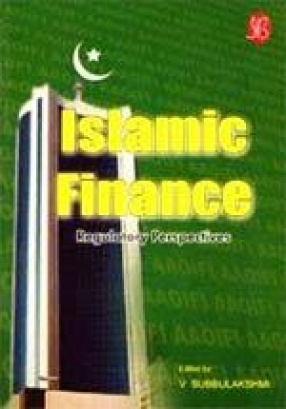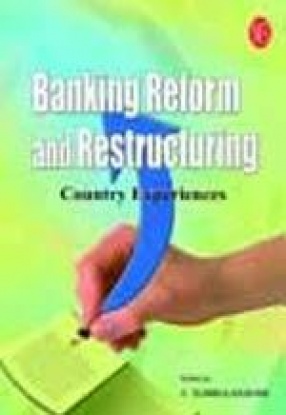
V. Subbulakshmi

Showing all 19 books








As the Islamic banking industry grows, challenges faced by it also grow at a faster pace. Many public policy issues have been raised in the jurisdictions in which they operate and at the international organizations, international standard setters, national regulatory authorities, policymakers, and academia to examine various aspects of Islamic financial intermediation, each from their own perspective. The main objective is to build uniform risk management ...

Convertibility of a currency implies that a currency can be transferred into another currency without any limitations or any control. A Currency is said to be fully convertible, it is can be converted into some other currency at the market price of that currency. The need for the currency conversions arises mainly from foreign exchange transactions. But these foreign exchange transactions are subject to some regulatory restrictions. If currency has to be ...

Corporate finance has been rising to new heights each day. Many new challenges are faced by the modern-day financial executives. However, the most important objective of a finance manager remains the same – maximizing shareholder value. This creation of value depends on various decisions taken by the managers during their normal course of activities. Some of the important decisions include those related to capital structure, capital budgeting, dividend ...

While Basel I issued in 1988 emphasized mainly on the capital adequacy norms required to be followed by the banks to avoid bankruptcy. Basel II brought about significant changes in the following areas: Capital Adequacy. Banking Supervision and Market Discipline. These three are popularly referred to as three pillars of the new accord. The second accord imposes equal importance on all the three. The Basel committee stresses the need for stringent adherence to all ...

After the Asian economic crisis, Asian countries saw the highs and lows of the costs and benefits of liberalization. When capital flows into a country it increases the invisible resources and catalyzes growth. But when a capital outflow takes place in unexpected pace and quantity, it plays havoc with the country’s economy as seen in East Asia. Important case studies on this subject here are those of India, Korea, Thailand, Japan and China.

Fund managers play a crucial role in managing people’s funds. To give of their best, they must update their knowledge of changes in the global financial markets. The idea is to be in step with market movements since investors judge them by their performance. This book discusses basics of portfolio management, investment policy, related theories and asset allocation procedures.

Making money is not half as hard as safeguarding it, for many of us. This book presents a vast array of investment opportunities to safeguard your wealth since it is not possible for everyone to make wise investments without advice. Financial advisors park your funds in safe and profitable schemes, and you park your trust in the advisor. This book discusses specialized portfolio management based on the characteristics of the portfolio’s components.

Not everyone can make good investment decisions-so individuals wanting long-term benefits from their investments seek the services of investment experts. This book explores portfolio management, the need for choosing an optimal portfolio and the intricacies involved. The book highlights the importance of monitoring portfolio performance consistently and measuring the fund manager's performance.

Bankruptcy filings are usually caused by excessive debt, lack of liquidity, fraud, mismanagement, unforeseen catastrophe, or to avoid litigation or eliminate huge debts. This book delves into cases of bankruptcy filing like United Airlines, Air Canada and The Penn Traffic Company.

This is a treatise on the Indian garment industry, and highlights the Multi Fibre Agreement (MFA), devised in 1974, which imposed quotas on the trade in Textiles and Clothing. In January 2005, all quotas that impacted the economies of developing countries dependent on textile and clothing exports were abolished.

Learning from the speculative use of derivatives of Barings Bank and the Enron implosion this book seeks out alternative risk management tools in the current market. Different ways to manage property portfolio, international diversification, alternative Investments, accounting for derivatives and management of investment institutions are discussed.

Every failed banking system is due to one unique feature. Since a country’s banking system is the powerhouse of a country’s economy as it steers the country's growth, this powerhouse should not fail, and if it does, it should be restored in time. This means anticipating a banking crisis is imperative. This book discusses several countries' experiences in the restructuring exercise and the lessons that one can learn from them.

To manage a banking crisis is a very difficult task for policymakers, but sometimes decisions taken are done on the basis of imperfect information and so are not the best solutions. But since banks are the nerve centers of modern economies, it is imperative to adopt a definite and solid approach to restructure them in the wake of crises. This book presents this concept with case studies of a few countries.

Explore the events of the banking crises in Bulgaria, Latvia, Finland, UK and Yugoslavia. This book is an eye-opener to banking crises in a transition economy like Bulgaria and explores the three Bs: Bad policies, Bad banking and Bad luck, leading to the Finland crisis and the Russian crisis of 1998 forcing the closure of 25 small banks in UK.

Most banking crises have some common aspects such as poor lending practices, high level of NPAs, high credit-deposit ratio and deteriorating macroeconomic conditions. This book deals with the banking crises of Latin America, while also reviewing those of Argentina, Brazil, Chile, etc, and demonstrating how each one recovered from it. In the process, the book presents important lessons to be learnt from each country's experiences.

Islamic banks offer the services of conventional banks but with a difference. There is no interest levied or given, usury or riba is prohibited, but many Islamic banks are receiving support. This book profiles Bahrain Islamic Bank, the Islamic Bank Bangladesh Ltd., Islamic Banking in Indonesia and Brunei Darussalam among others.

Do the dynamics of the dollar and currency volatility confuse you? This book will give you a conceptual understanding of the International Monetary System, the foreign exchange market, exchange rate determination, exchange rate forecasting as well as introduce you to managing exchange risk.

After the introduction on Investment banking, learn of more advanced issues. This book sees Investment banking is seen in the light of globalization, competition and rapid changes in the socio-economic and technological environment and how investment banks must design their structure, systems and operations to succeed. Since they operate in very volatile environments with varying macroeconomic factors and investor sentiments, they are open to risks, and a failure ...

A handful of economists in Latin America saw liberalization as a short route to prosperity, though they were discouraged by the recent economic crises globally. This made the Latin Americans rethink their decision of opening up their economies. Read all about capital movements in Argentina, restrictions in Chile and Columbia, the "exican miracle" and the crisis in Peso in 1994.
